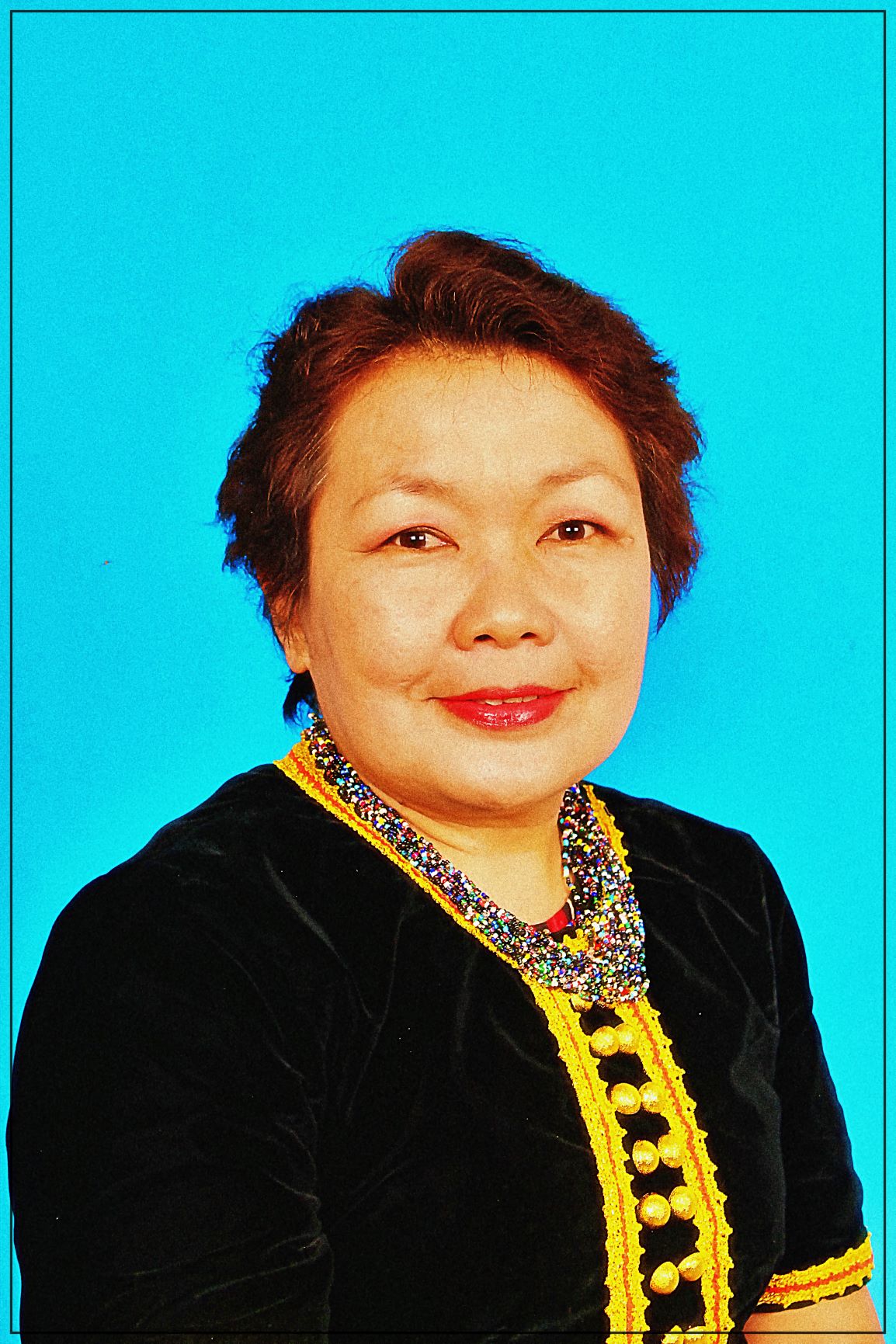Plenary Speakers
Plenary livestream recordings are now available! Each recording is available for purchase-to-view for $25, email membership@conbio.org to complete your transaction.
Recordings can be found here, but are password protected.
Monday, 22 July
Tuesday, 23 July
Wednesday, 24 July
Thursday, 25 July
Monday, 22 July
Plastic Solutions: What's Good for the Environment is Good for Business
Session description: We are all connected by water, and Fabien Cousteau believes it’s something that should dictate the bottom line. In this illuminating presentation, Cousteau makes the connection between business and the environment—illustrating how Corporate America’s contribution to the sustainability of the planet impacts the overall economy. He shares the value of the roles conservation professionals can work in collaboration with business management so that corporations can take a leadership role in the stewardship of our oceans while incorporating it into their mission statement.
Sponsored by a marine resource conservation Foundation.
|
|
| Biography: Deep Ocean Explorer and Environmentally-conscious Business Strategist, Grandson of the Legendary Explorer Jacques Cousteau, Fabien Cousteau challenges you to develop innovative solutions to environmental problems by cultivating your own spirit of curiosity and adventure. This grandson of legendary explorer Jacque-Yves Cousteau, Fabien continues to fulfill his family’s legacy of protecting and preserving the planet’s extensive and endangered marine inhabitants and habitats. As an accomplished aquanaut, business strategist and documentary filmmaker, Fabien draws from his experiences and knowledge to promote environmental discipline as a viable basis for cutting-edge solutions that strike a balance between regional and global environmental problems and the realities of market economies. On stage, Fabien exudes enthusiasm as he combines tales from his underwater voyages with stories from his nonprofit work to demonstrate the need for bold and innovative thinking among individuals and corporations to progress conservation efforts worldwide. Audiences come away inspired and empowered to unleash their own curiosity and push beyond known boundaries to do their part in making a better future. |
Tuesday, 23 July
Faith and Conservation in Dialogue
Session description: On what common grounds can faith traditions and conservation science converge to protect life on Earth? Faith groups have been protecting nature long before the formal conservation movement came into being. What can be learned from leaders of faith communities about their beliefs, values and activities related to the protection of biodiversity? Join us during this unique plenary with four prominent leaders of Malaysian indigenous spirituality, Buddhism, Christianity, and Islam engaged in environmental conservation. Bring your frank questions to ask and your concerns to voice as we explore how faith and science can collaborate to achieve mutual goals.
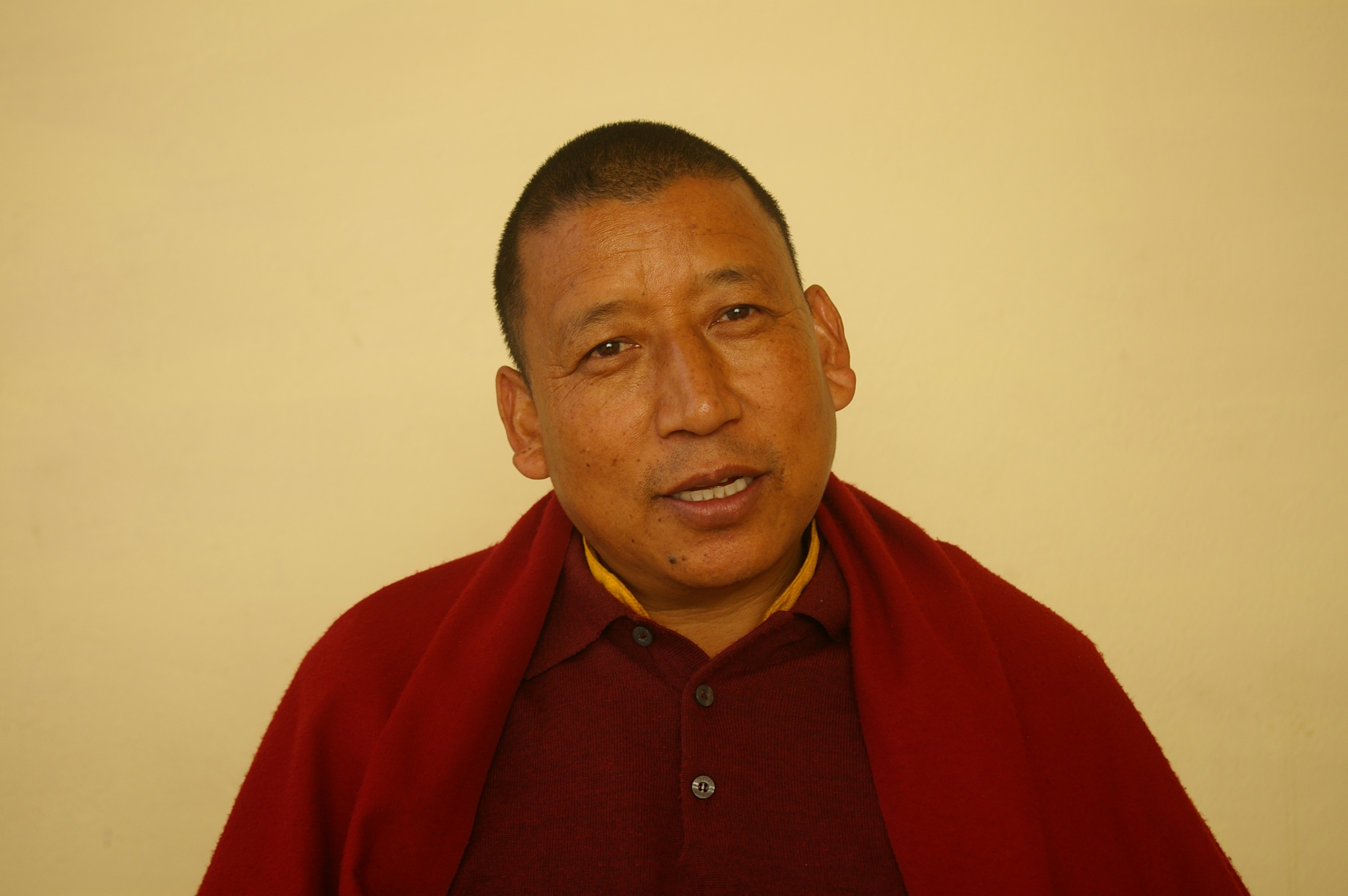 |
||
|
Biography: By appointment of His Holiness the 17th Karmapa Orgyen Trinley Dorje in 2015, Abbot Chekke coordinates Khoryug Nepal, the environment movement dedicated to protecting the Himalayan region from environmental degradation. Among his many responsibilities are providing guidance for the education of monks in sixteen monasteries and nunneries, teaching Buddhist philosophy at affiliated Dharma centers in Asia and Africa, and making the Pullahari Monastery in Nepal ecologically friendly. His passion for flora and fauna began when assisting the gardener at Karma Shri Nalanda Institute in planting flowers and intensified when he accepted responsibility for managing the conversion of terraced fields surrounding Pullahari into a lush forest with a variety of trees that improve the quality of the air and provide refuge for many species of migratory birds. He is committed to raising the ecological consciousness of monks through studying issues and applying conservation practices in all phases of monastery life.
|
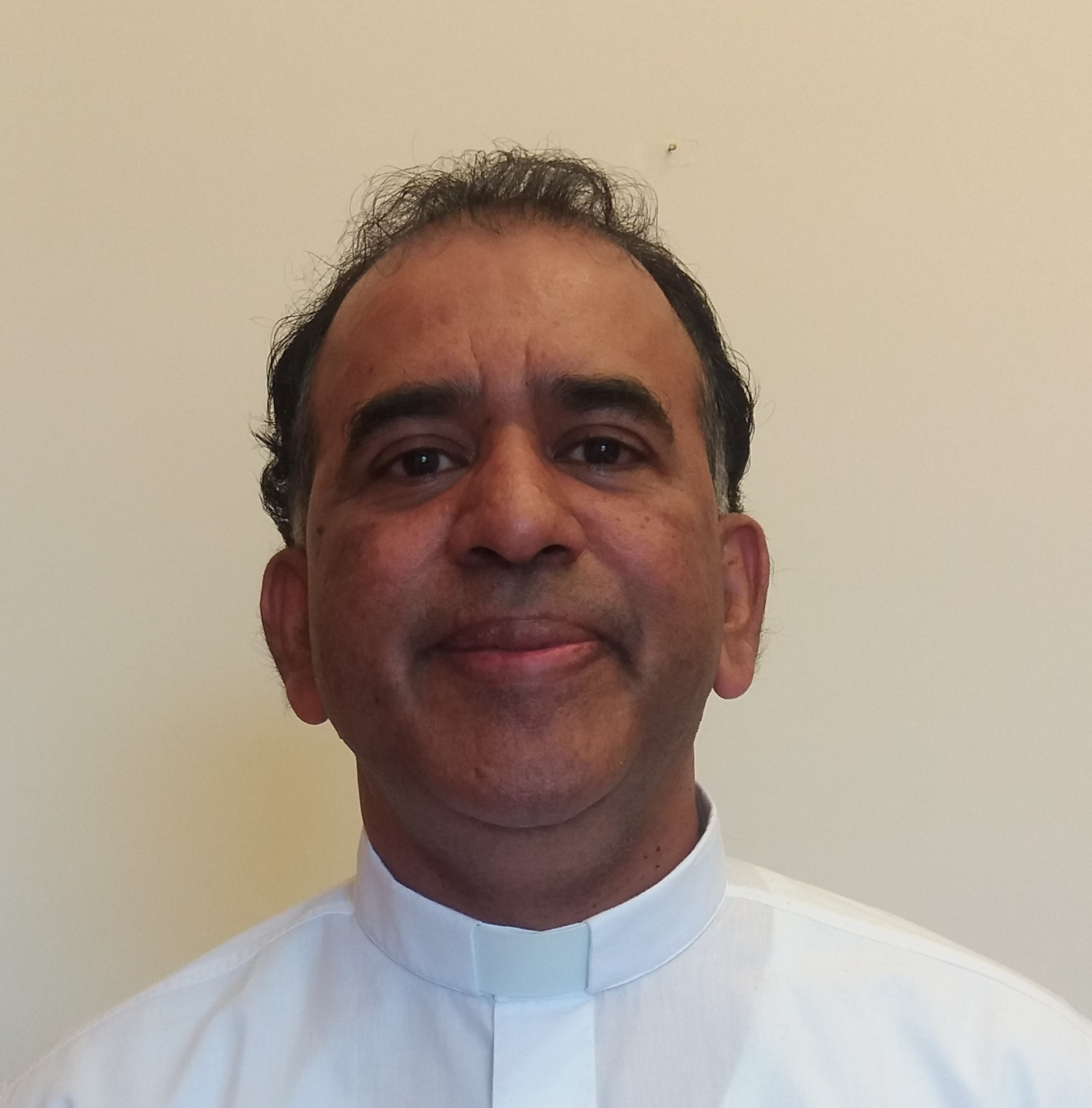 |
|
Biography: Rev. Joshtrom Isaac Kureethadam is Coordinator of the Sector on Ecology and Creation at the Vatican Dicastery for Promoting Integral Human Development in Vatican City. He also serves as Chairperson of the Philosophy of Science and Director of the Institute of Social and Political Sciences at the Salesian Pontifical University in Rome. His double passion is to pass on to younger generations not only a sense of awe and wonder before the grandeur and majesty of the universe, but also a deep sense of concern for the increasingly precarious state of our common planetary home. For nearly a quarter of a century, he has been particularly engaged with ecological issues, teaching courses, conducting workshops for young people and committed grassroots activists, and publishing articles and books in this area. He has been particularly associated with the study and diffusion of Laudato Si’, Pope Francis’ Encyclical Letter on Care for Our Common Home. |
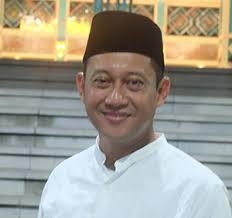 |
|
Biography: Dr. Hayu Prabowo, Chairman of the Environmental and Natural Resources Board of the Indonesian Council of Ulema (MUI), has spearheaded and advanced environmental initiatives on eco-mosques, Muslim-friendly ecotourism, clean water and sanitation education in Islamic schools, and the passage of environmental fatwas (Islamic law rulings) on mining, the protection of threatened species, and burning forests and peatlands. He also chairs the Siaga Bumi (Standby Earth) Multi-faith Environment Forum, the only gathering of diverse religious communities in Indonesia that is dedicated to identifying and implementing ways to care about other species and the natural environment. |
Wednesday, 24 July
Rarefaction and Extrapolation: Standardizing Samples to Make Fair Comparisons of Biodiversity among Multiple Assemblages
Session description: The goal in many biodiversity analyses is to make a fair comparison and assessment of diversity measures (e.g., species richness, taxonomic diversity, phylogenetic diversity and functional diversity) among multiple assemblages. For most measures, it is well known that the empirical diversities in a sample are dependent on sample size or sampling efforts. When samples are incomplete, standardization via rarefaction and extrapolation is needed; rarefaction and extrapolation methods allow for fair and meaningful comparison of diversity estimates for standardized samples on the basis of sample size or sample completeness. In this talk, two types of standardization methods are reviewed: (1) Sample-size-based rarefaction and extrapolation methods aim to compare diversity estimates for equally-large samples determined by samplers. (2) Coverage-based rarefaction and extrapolation methods aim to compare diversity estimates for equally-complete samples; the sample completeness in this method is measured by sample coverage (the proportion of the total number of individuals that belong to the species detected in the sample), a concept originally developed by Alan Turing and I. J. Good in their cryptographic analysis during World War II. Contrary to intuition, sample coverage for the observed sample, rarefied samples, and extrapolated samples can be accurately estimated by the observed data themselves. These two types of standardization methods allow researchers to efficiently use all available data to make robust and detailed inferences about the sampled assemblages, and also to make objective comparisons among multiple assemblages. Hypothetical and real examples are presented for illustrating the use of the online software iNEXT (iNterpolation/EXTrapolation) to compute and plot seamless rarefaction/extrapolation sampling curves based on several diversity measures.
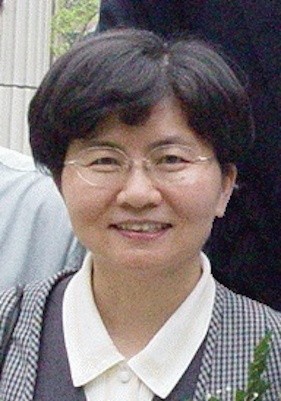 |
|
Biography: Anne Chao is 60% statistician, 30% mathematician and 10% ecologist. She received her BS in mathematics from National Tsing Hua University, Taiwan, in 1973, and her PhD in statistics from the University of Wisconsin-Madison in 1977. Since 1978, she has been with the Institute of Statistics, National Tsing Hua University, Taiwan, where she is currently a TsingHua Distinguished Chair Professor. She is a Fellow of the Institute of Mathematical Statistics, and held a Taiwan National Chair Professorship. Chao has long been fascinated with mathematical and statistical issues arising in ecology and related sciences; her major research interests include ecological statistics, statistical inferences of biodiversity measures, and statistical analysis of ecological/environmental survey data. She and her collaborators have published more than 130 papers with citations > 20400 in Google Scholar. Their papers have (i) developed several biodiversity measures/estimators including Chao1, Chao2, ACE, and ICE for species richness, as well as some novel methods to infer entropy, diversity and related similarity/differentiation measures, (ii) established a unified mathematical/statistical framework for taxonomic, phylogenetic and functional diversities, and (iii) generalized the classic sample-size-based rarefaction method to sample-coverage-based rarefaction and extrapolation, to standardize biodiversity samples. To implement their methodologies, Chao and her colleagues/students have also developed statistical software including CARE (CApture-REcapture), Species-richness Prediction and Diversity Estimation, S, iNEXT (iNterpolation/EXTrapolation), PhD (Phylogenetic Diversity) and FunD (Functional Diversity). For the past 20 years, Chao served in the editorial boards of four major statistical journals, and currently serves as an Associate Editor for Methods in Ecology and Evolution. |
Thursday, 25 July
Saving Species on the Brink: Sumatran Rhino Rescue - Morning Plenary
Session description: Sumatran Rhino Rescue is a groundbreaking, collaborative effort to save a species from extinction. Bringing together the Government of Indonesia, some of the world’s top international conservation organizations, local experts and conservation practitioners, and supporters from around the world, the effort aims to save the Sumatran rhino from extinction by supporting search and rescue efforts to relocate rhinos in the wild and build conservation breeding facilities designed specifically for their care. Hear from the Sumatran Rhino Rescue team and key partners about how this unique model for conservation that blends government leadership, extensive technical expertise, and captivating storytelling can help save this unique species and be a model for future efforts to save species on the brink.
Sponsored by:

Armchair Conversation: How we got here – a brief history of efforts to save the Sumatran rhino
Moderator: Jeremy Hance, Senior Correspondent, Monga Bay
Panelists:
John Payne, Executive Director, Borneo Rhino Alliance
Margaret Kinnaird, Global Wildlife Practice Leader, WWF International
Regional Panel Plenary - Saving Species on the Brink: Sumatran Rhino Rescue
Moderator: Jeremy Hance, Senior Correspondent, Monga Bay
Panelists:
Jon Paul Rodriguez, Chair, IUCN Species Survival Commission
Terri Roth, Vice President of Conservation & Science and. Director of the Center for Conservation and Research of. Endangered Wildlife (CREW), Cincinnati Zoo & Botanical Garden
Rudi Putra, Director, Leuser Conservation Forum and National Geographic Fellow
Achieving Global Conservation Impacts: The Critical Role of Collaboration, Community and Culture - Closing Plenary
Session description: Our planet may well be approaching an ecological tipping point – with conservation efforts struggling to keep up with habitat degradation and biodiversity loss. In our race to protect the last vestiges of the natural environment, an often overlooked but critical aspect to ecological conservation are the human dimensions, particularly the role that indigenous peoples and their cultures play in sustainable management and stewardship. As the push for protection of habitats intensifies, many efforts focus on large area protection and no take zones, such as large marine protected areas. These efforts may be overlooking the critical role that local communities play in establishing and managing smaller multi-use protected areas, and the contributions of their knowledge and management systems towards the conservation of (collectively) vast areas of critical coral reef habitat. Marginalizing indigenous people and their methods in favor of more western approaches may well be contributing to further degradation (both ecologically and culturally) in some places. Micronesian outer Island communities are on the front lines of ecological and cultural change, and are facing declines in needed reef resources, and the benefits that healthy reefs provide. We will highlight successes of the One People One Reef collaborative program in the outer islands of Yap State, Federated States of Micronesia. This work celebrates the knowledge and leadership of local communities, supported by modern science, to restore critical coral reef habitat and resources across a vast archipelago in the western pacific. Activism, science, and collaboration across cultures are key to conservation successes as we enter a new and vital chapter in global conservation efforts.
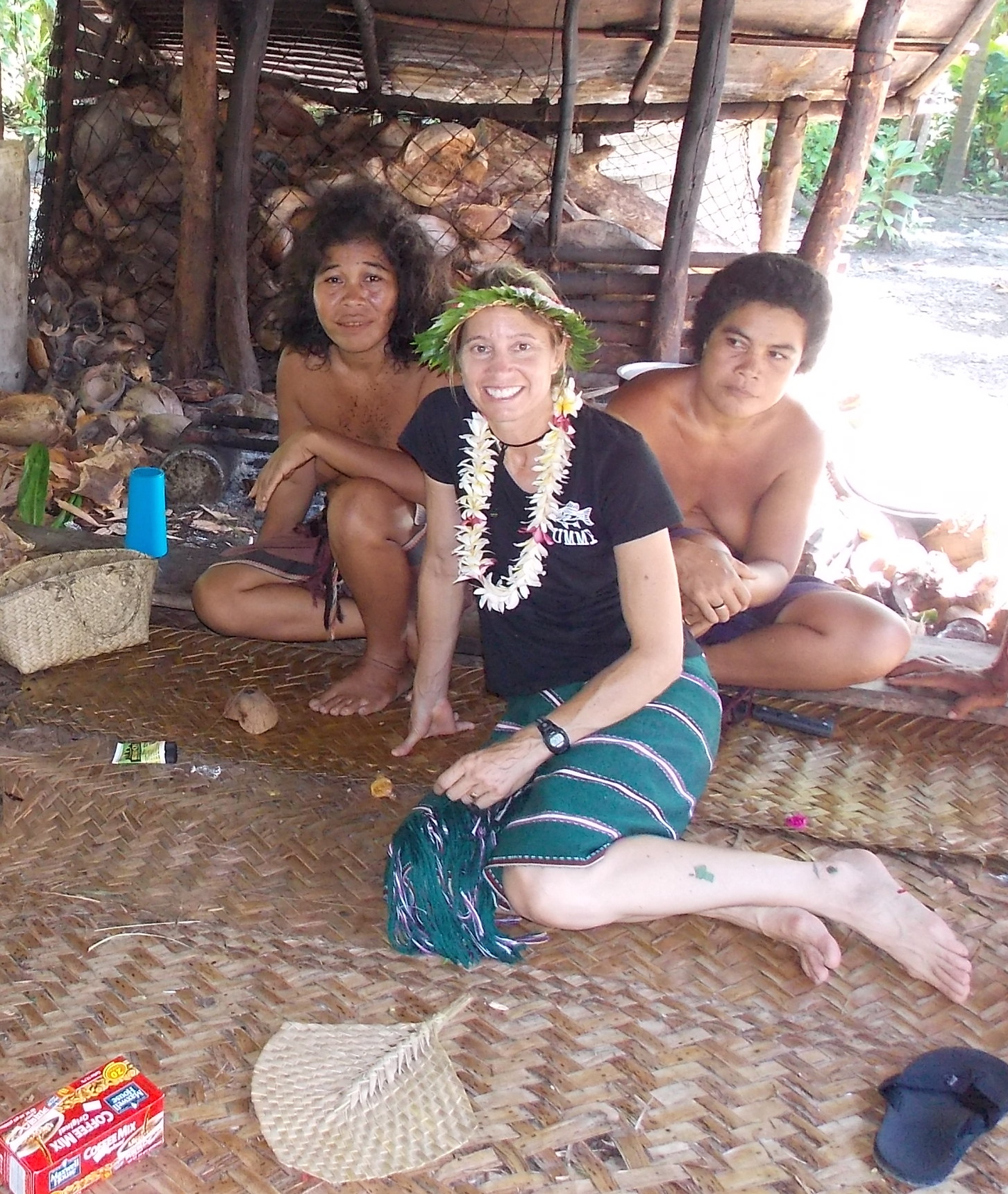 |
|
Biography: Nicole Crane’s work focuses on the nexus between ecosystems, and the people who rely on and manage them. Together with John Rulmal Jr. she co-leads One People One Reef, an effort focused on working with Micronesian outer island communities to support coral reef management. Their unique approach, in close collaboration with community members, has seen remarkable successes both socially and environmentally, across the Yap outer islands. Nicole has more than 20 years of experience working with communities and conducting ecological assessments of reefs. She is dedicated to linking rigorous science with cultural knowledge and community leadership in conservation. Nicole has established several science education programs in the United States, with a focus on serving underrepresented students. She was the founder and Principal Investigator of the National Science Foundation Center for Excellence in Marine Advanced Technology Education, and Principal Investigator/Executive Director for Camp SEA Lab. She includes citizen scientists and students in her work, and is committed to enhancing citizen science across cultures and disciplines. Nicole is a faculty in the Natural and Applied Sciences division at Cabrillo College, Senior Conservation Scientist, and associate at the California Academy of Sciences. |
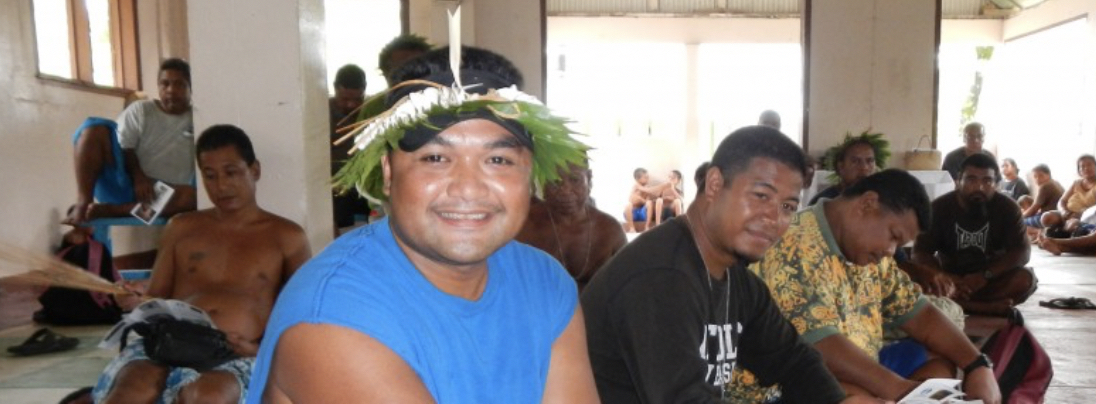 |
|
Biography: John Jr. (Magul) Rulmal is a community leader for Ulithi Atoll and the Yap outer island chain (Federated States of Micronesia), where he lives, and Co-Leader for the One People One Reef progam. He is a tireless advocate for community health and well-being, cultural integrity, and reef management, uniting communities around these critical issues. With One People One Reef, He engages Chiefs, Leaders and community members to come together around the central issue of maintaining sustainable food supplies by ensuring healthy reefs and fish populations for the people of the Yap outer islands. He is a tireless advocate for conservation and management with people at the center. He has given presentations and briefings at international conferences, schools, government platforms, Chief and leadership councils, and with government agencies. He was the recipient of the 2016 Coral Reef Alliance Coral Conservation prize. John Rulmal is the Co-Leader of the One People One Reef project, officer for the Ulithi Falalop Community Action Program, and mentor for youth in the outer islands. |
.jpg)
